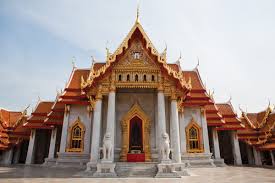Religion

Your plane lands in an empty field. You cough at the dust kicked up by the engines as you exit and make your way towards to scattering of villages and buildings. Even as an expert in religious studies, you know this is going to be a great challenge. You make your way towards the buildings nonetheless, flipping through your notes and preparing yourself for a tense few days of work.
Christianity had more religious conflict than Buddhism because it is more widespread and therefore more fragmented-- but also because Christianity addresses questions of "right" and "wrong" much more than Buddhism, and so causes more religious debate.
Unlike buddhism, Christianity pertains more to spirituality.
After three hours of interviewing locals and visiting temples, you think you understand some basics. There was a specific historian, however, who gives you the best view of Buddhism:
"Siddhartha Gautama was the founder of Buddhism. He was an Indian prince who lived in luxury, yet was never fulfilled. He ends up leaving his palace and comes across a group of men. They were poor and sick. Siddhartha Gautama learned that there was suffering in the world, and it bothered him. It is said that he meditated under a tree for years, and eventually becomes enlightened, the Buddha. “According to Buddhist tradition, the prince had enjoyed a sheltered and delightful youth but was shocked to his core upon encountering old age, sickness, and death. Leaving family and fortune behind, he then set out on a six-year spiritual quest, finally achieving insight, or ‘enlightenment,’ at the age of thirty-five.” - Robert Strayer. “Much of the Buddha’s teaching reflected the Hindu traditions from which it sprang. The idea that ordinary life is an illusion, the concepts of karma and rebirth, the goal of overcoming the incessant demands of the ego, the practice of meditation the hope for final release from the cycle of rebirth, all of these Hindu elements found their way into Buddhist teaching. In this respect, Buddhism was a simplified and more accessible version of Hinduism” - Robert Strayer.
Christianity had more religious conflict than Buddhism because it is more widespread and therefore more fragmented-- but also because Christianity addresses questions of "right" and "wrong" much more than Buddhism, and so causes more religious debate.
Unlike buddhism, Christianity pertains more to spirituality.
After three hours of interviewing locals and visiting temples, you think you understand some basics. There was a specific historian, however, who gives you the best view of Buddhism:
"Siddhartha Gautama was the founder of Buddhism. He was an Indian prince who lived in luxury, yet was never fulfilled. He ends up leaving his palace and comes across a group of men. They were poor and sick. Siddhartha Gautama learned that there was suffering in the world, and it bothered him. It is said that he meditated under a tree for years, and eventually becomes enlightened, the Buddha. “According to Buddhist tradition, the prince had enjoyed a sheltered and delightful youth but was shocked to his core upon encountering old age, sickness, and death. Leaving family and fortune behind, he then set out on a six-year spiritual quest, finally achieving insight, or ‘enlightenment,’ at the age of thirty-five.” - Robert Strayer. “Much of the Buddha’s teaching reflected the Hindu traditions from which it sprang. The idea that ordinary life is an illusion, the concepts of karma and rebirth, the goal of overcoming the incessant demands of the ego, the practice of meditation the hope for final release from the cycle of rebirth, all of these Hindu elements found their way into Buddhist teaching. In this respect, Buddhism was a simplified and more accessible version of Hinduism” - Robert Strayer.